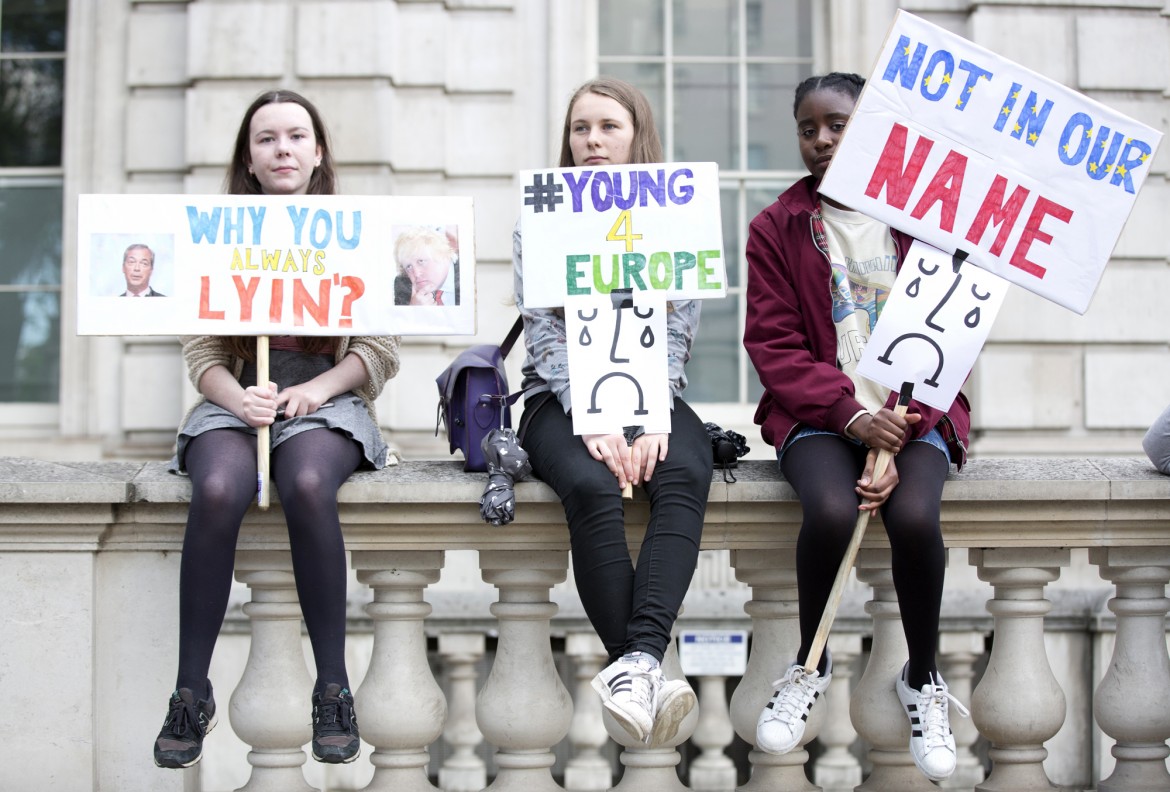Analysis
UK votes to kill Erasmus, severing another link to Europe
This is one of the first consequences of the wide margin of support that the Johnson government now enjoys in Parliament, after winning the recent snap elections in a landslide with a majority of 78 seats.

“We don’t need Erasmus, we’re British,” seems to be the message put out by Johnson’s majority. The exaltation of sheer folly that defines Brexit-era Britain is making its first illustrious victim: the Erasmus program, the beloved academic exchange program.
After educating generations of European students by offering them an indispensable experience — the opportunity to study and research in a country other than their own — the program is set to disappear from the range of options available to British students. On Wednesday, Parliament voted on a motion to protect the current incarnation of the program, Erasmus+, in the country’s exit agreement before Brexit takes place on Jan. 31. The motion, brought by the Lib Dems, the Scottish National Party and the Greens, failed by 344 votes to 254.
Secretary of State for Education Gavin Williamson, Minister of State for School Standards Nick Gibb and Chris Skidmore, the Minister of State for Universities, all voted against the motion. If it had passed, the government would have been required by law to negotiate the continued membership of the UK in the Erasmus program after Brexit.
We are seeing one of the first consequences of the wide margin of support that the Johnson government now enjoys in Parliament, after winning the recent snap elections in a landslide with a majority of 78 seats. Their sizable majority means that the exit process will no longer have to navigate the notorious parliamentary straits in which it had been mired for the past two years.
The Erasmus program was the framework used by 53% of British students studying abroad. In 2017, there were 16,561 of them, while 31,727 Europeans were taking part in the program as guests in the United Kingdom. Now, thousands of students who have fulfilled the preliminary formalities for the program are left hanging in uncertainty, despite the government’s reassurances.
The repeated delays of the Brexit deadline have so far ensured that the funds for the 2019-2020 school year have been allocated, but what will follow after that is still unclear, also due to the fact that the program works on a seven-year cycle. The failure of the parliamentary motion means that the government is not legally obligated to negotiate the UK’s continued presence in the program, but it can do so at its discretion. It’s not unlikely that it will seek an alternative solution to full membership, which will preserve the possibility of a limited period of education for UK students in Europe and vice versa.
There is also the possibility of a system of paid participation in the program, as already practiced by Turkey, Iceland, Norway and Serbia, or even that of leaving it up to single universities to establish individual relationships with their European counterparts. In any case, it is unlikely the government will finalize the decision to take part in the program in time for the start of the next cycle, which will run from 2021 to 2027.
Thus, another bond between the UK and the EU is likely to be severed. Brexit will officially take place on Jan. 31, after the British Parliament approves the withdrawal agreement, the ratification by the European one and the beginning of the so-called transition period, in which the future structure of the relationship between the two will be decided—a period which will expire at the end of the year. In the meantime, everything will remain as it is, both in the commercial and institutional realms.
Behind this blatantly self-harming decision lies the true core principle, that of sovereignism: while no longer being “forced” to do anything “from Brussels” seems to fit with the “take back control” slogan, invoked by Brexiteers with the unsettling regularity of a mantra, the cultural fallout is obvious to all.
In the same vein, the government has said that if the negotiations for the continued participation of the United Kingdom in the Erasmus program should fail, they will begin negotiations with individual countries in order to set up “bilateral” exchanges. This will only swell the massive pile of deals to be negotiated, under whose burden British officials are already drowning, even more.
Originally published at https://ilmanifesto.it/niente-erasmus-siamo-inglesi-studenti-a-casa-nellera-brexit/ on 2020-01-10
